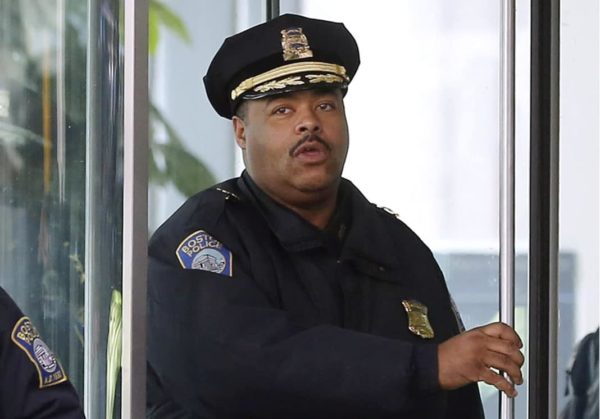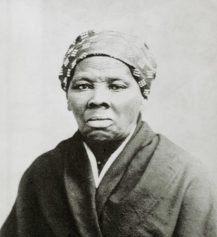
Boston Police Superintendent-in-Chief William Gross walks through a door of a hospital in Boston.(AP Photo/Steven Senne, File)
BOSTON (AP) — The head of the Boston police department, who played a major role in the city’s response to the 2013 marathon bombing, is stepping down after nearly four decades with the force, and his second-in-command will become the city’s first black commissioner, officials said Monday.
Commissioner William Evans told reporters he’s retiring to become police chief at Boston College. He’ll be succeeded by Superintendent-In-Chief William Gross, Mayor Marty Walsh said.
“He’s the right person at the right time for this job,” Walsh said.
Evans, a native of South Boston, lost both his parents at a young age and was raised by his older brothers, one of whom served as police commissioner before him. He started as a cadet in 1980 and rose through the ranks, eventually becoming superintendent, overseeing special events and the department’s patrol division.
He was a key player in the investigation into the marathon bombing that killed three spectators and injured more than 260 others. An avid runner, Evans finished the race before the bombs went off and then returned to help his colleagues in the manhunt for the Tsarnaev brothers.
He was named interim commissioner in November 2013 after the resignation of Edward Davis and was appointed to the post permanently in 2014.
Evans had tears in his eyes as he explained it’s time for him to slow down and spend more time with his family. He joked that he’s looking forward to getting more rest, saying he sleeps with one eye open out of fear for a late-night call with bad news.
“I never dreamed of the day I would be up here as commissioner,” Evans said. “It’s been a great ride.”
Gross was also the department’s first black superintendent in chief — a role he has held since 2014. He became a patrol officer in 1985, worked in the gang and drug control units and became night commander in 2012.
Gross’ mother beamed in the front row as Walsh announced his promotion. Gross said he told her the press conference was being held because he was winning an award.
He said he’s honored to lead the department and acknowledged the challenges ahead in stemming what he called “senseless youth violence.”
“This is my sincere thanks to the community for helping to raise me, guide me and mentor me,” Gross said.

